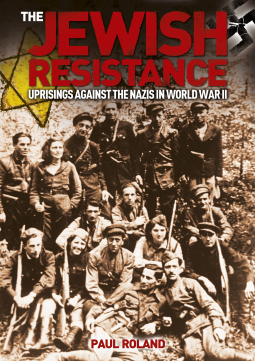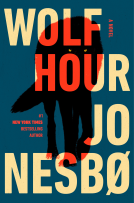
The Jewish Resistance
Uprisings against the Nazis in World War II
by Paul Roland
This title was previously available on NetGalley and is now archived.
Send NetGalley books directly to your Kindle or Kindle app
1
To read on a Kindle or Kindle app, please add kindle@netgalley.com as an approved email address to receive files in your Amazon account. Click here for step-by-step instructions.
2
Also find your Kindle email address within your Amazon account, and enter it here.
Pub Date Jul 11 2017 | Archive Date Mar 25 2018
Arcturus Digital | Arcturus
Talking about this book? Use #TheJewishResistance #NetGalley. More hashtag tips!
Description
Threatened with extermination, many Jewish people refused to go passively to their deaths at the hands of the Nazis during World War II and instead put up heroic resistance. Prisoners at Sobibór and Treblinka organized successful revolts, while at Auschwitz they sacrificed their lives to dynamite the crematorium.
Beyond the barbed wire of the camps, hundreds of Jewish people were active in the French resistance and thousands fought with partisans in other occupied countries. One and a half million more served in the Allied armed forces. Incredibly, it took the Nazis longer to subdue the forces of the Warsaw ghetto than it had taken them to defeat the Polish army in 1939. This book reveals a little-known chapter of history and uncovers many stories of amazing courage in the face of overwhelming odds.
Available Editions
| EDITION | Ebook |
| ISBN | 9781788284639 |
| PRICE | £2.49 (GBP) |
Average rating from 9 members
Featured Reviews
The myth that Jews walked like calves to the slaughter without fighting back is just that -- a myth. Here, Roland documents various acts of resistance and rebellion from Berlin to Brussels to Algeria to Minsk and Sobibor. At times, it's a taste of Inglorious Bastards with the armed resistance planting secret bombs and conducting midnight raids. Other times, the rebellions were acts of utter desperation, weaponless, against an Army that had overrun all of Western Europe in just a few short weeks. In the Warsaw ghetto, as Leon Uris chronicled in Mila 18, held out against the Third Reich far longer than the entire Polish Army had and with far fewer weapons and no help from their Polish neighbors who betrayed them every chance they got. Roland tells this story - or these various stories - in an easy-to-read manner, but it doesn't lack for details and doesn't lack for bravery against all odds.
Readers who liked this book also liked:
L.M Montgomery
Children's Fiction, Comics, Graphic Novels, Manga, Teens & YA


















